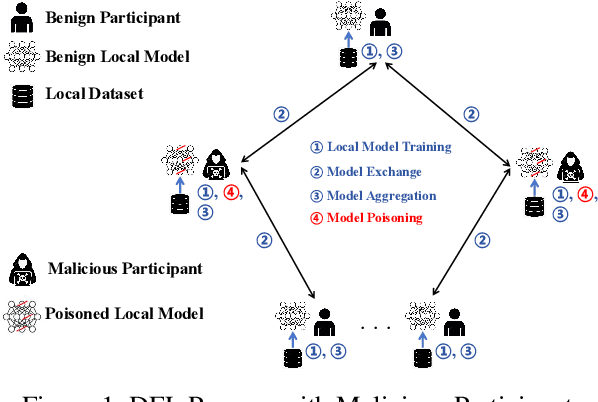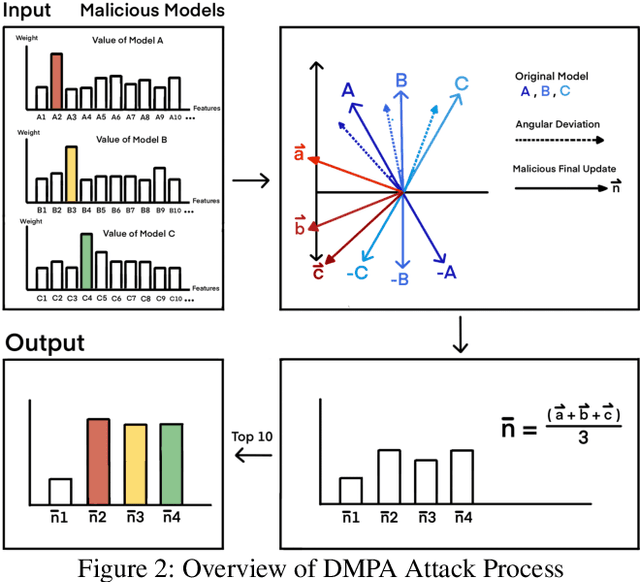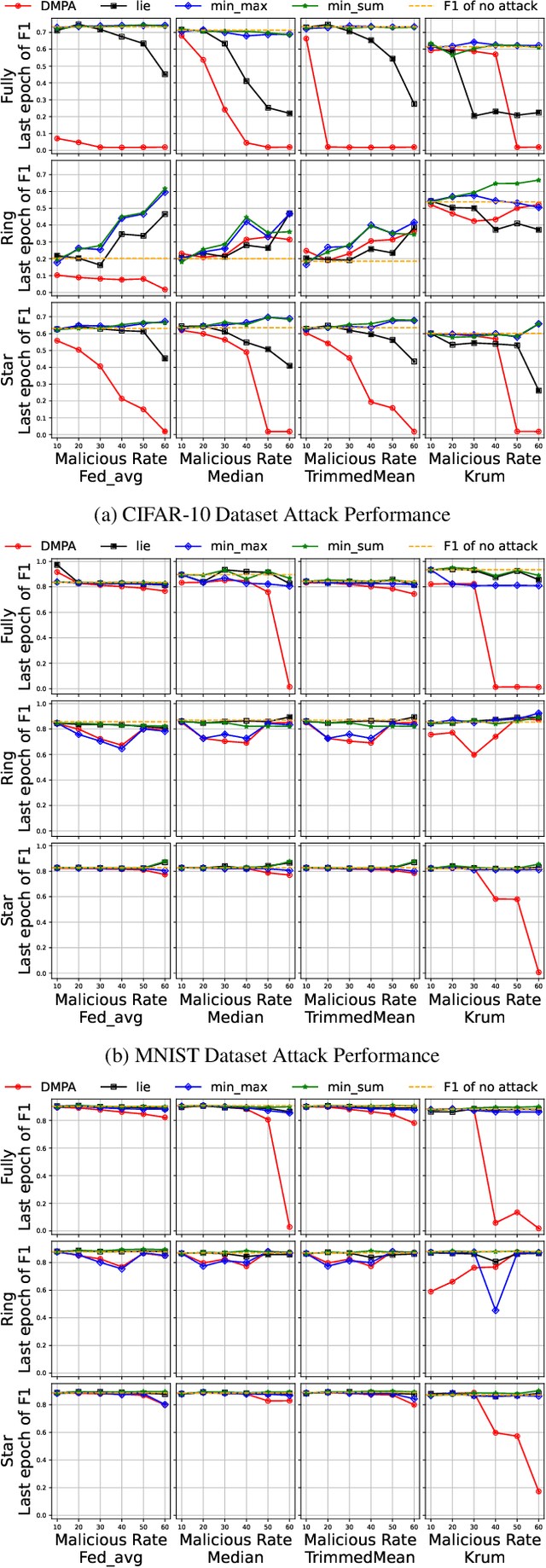DMPA: Model Poisoning Attacks on Decentralized Federated Learning for Model Differences
Paper and Code
Feb 07, 2025



Federated learning (FL) has garnered significant attention as a prominent privacy-preserving Machine Learning (ML) paradigm. Decentralized FL (DFL) eschews traditional FL's centralized server architecture, enhancing the system's robustness and scalability. However, these advantages of DFL also create new vulnerabilities for malicious participants to execute adversarial attacks, especially model poisoning attacks. In model poisoning attacks, malicious participants aim to diminish the performance of benign models by creating and disseminating the compromised model. Existing research on model poisoning attacks has predominantly concentrated on undermining global models within the Centralized FL (CFL) paradigm, while there needs to be more research in DFL. To fill the research gap, this paper proposes an innovative model poisoning attack called DMPA. This attack calculates the differential characteristics of multiple malicious client models and obtains the most effective poisoning strategy, thereby orchestrating a collusive attack by multiple participants. The effectiveness of this attack is validated across multiple datasets, with results indicating that the DMPA approach consistently surpasses existing state-of-the-art FL model poisoning attack strategies.
 Add to Chrome
Add to Chrome Add to Firefox
Add to Firefox Add to Edge
Add to Edge